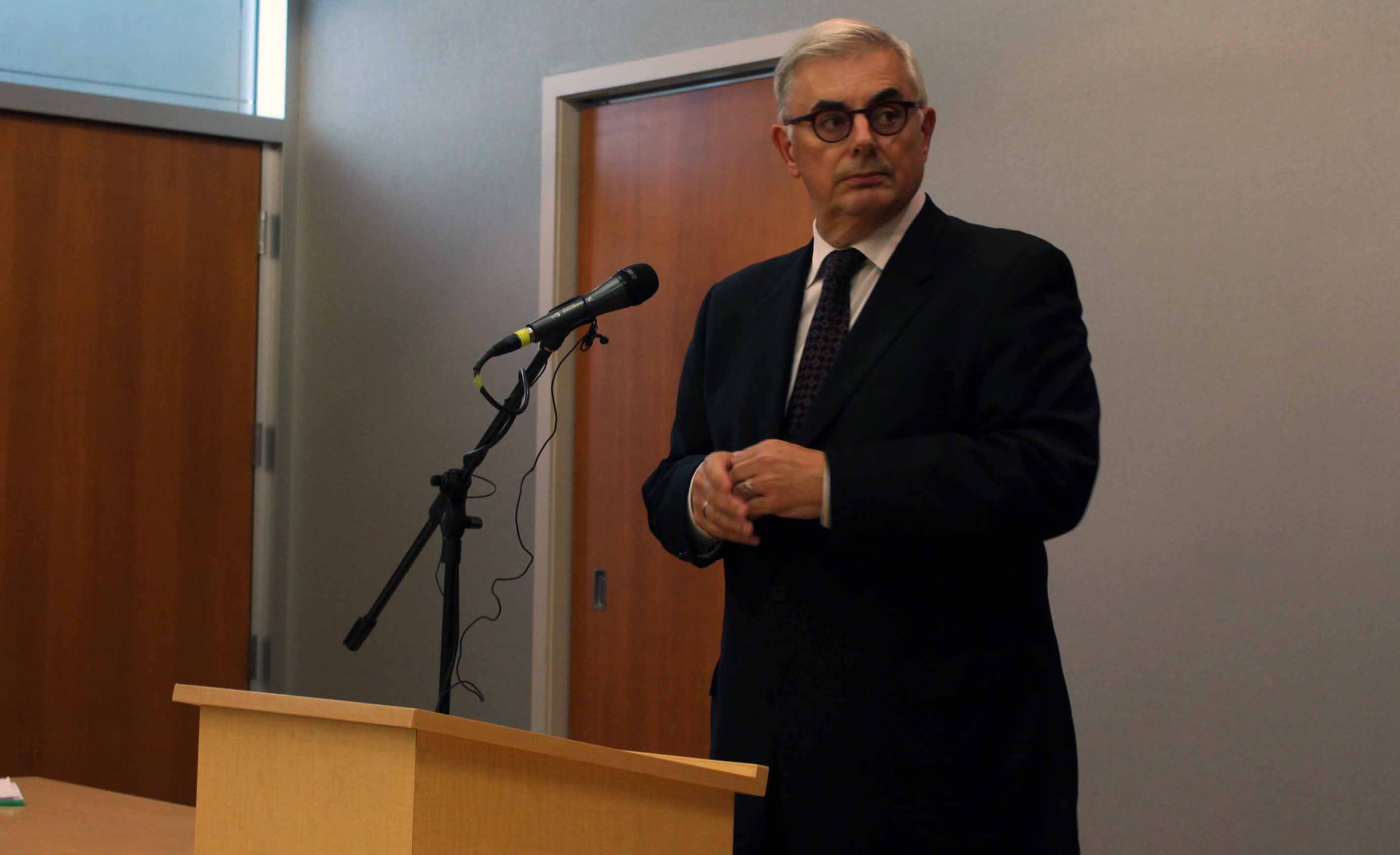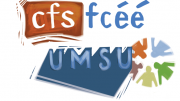This article was updated on Sept. 16 to include additional interviews.
Despite voting to remain neutral in transit negotiations only two weeks ago, the UMSU board of directors voted Thursday overwhelmingly in support of the Amalgamated Transit Union (ATU) in the standoff between transit drivers and Winnipeg Transit.
The motion, drafted at UMSU’s regular board meeting following a presentation from the ATU, moves to “work with the ATU and student and community organizations to press for improved transit service, and UMSU representation on the internal scheduling review committee.”
Winnipeg Transit declined an invitation to send a representative to the meeting.
The motion also calls for the reinstatement of provincial 50-50 transit funding — wherein Manitoba’s government shouldered half the burden of operational transit funding with municipalities. That model ended in 2017 after the provincial Progressive Conservative government froze Winnipeg’s funding at 2016 levels.
Negotiations between the city and the ATU have been ongoing since the previous contract expired in January.
The most recent proposal was presented by the ATU to the city Aug. 16. It included a wage increase lower than the city’s previous offer, five-minute recovery times for drivers at the end of routes and scheduling overhauls.
The proposal was rejected by the city without a further offer. ATU director of communications Zach Fleisher gave a presentation to the board, urging it to support the union.
“We want to see reliable scheduling,” said Fleisher. “That’s the number one thing.”
Asked by Arts Student Body Council representative Zac Wronski how the ATU’s asks compare with other Canadian transit policies, Fleisher noted that while other cities may not have guaranteed recovery times, the ATU is asking for it out of need.
“Winnipeg Transit, a few years ago, won two straight awards for being the most cost-effective agency in Canada.” noted Fleisher. “We’re running a pretty tight ship and so we want the five-minute recovery time.”
Fleisher said the ATU is calling for citizen representation on the transit scheduling committee and that an UMSU representative would be a welcome addition.
“We would love to see someone from UMSU on that because you are literally the biggest client base that transit has, we’re moving 10,000 students a day.”
UMSU president Jakob Sanderson said a statement was forwarded from Winnipeg Transit manager of finance and administration Laurie Fisher, who said the city will honour the terms of the U-Pass agreement and provide refunds to students in the event of a strike or lockout. She added that if students have any questions they may contact her.
St. Paul’s College Students’ Association representative Cory Frederickson, who at the board’s Aug. 27 meeting forwarded the successful motion to remain neutral, maintained his conviction that UMSU not yet take a stance on the issue.
He was skeptical about whether Winnipeg Transit was given enough notice to realistically prepare a presentation for the board.
“This three-day email and not knowing the other party was going to be here sounds slightly lopsided to me, and I think that we would be misjudged in making a motion right now,” he said.
Frederickson’s argument was met with several dissenting voices. Sharlene MacCoy, mature and part-time students’ representative, strongly voiced her belief that the absence of Winnipeg Transit was not due to time constraints, saying, “Transit isn’t here because transit doesn’t care.”
Trevor Smith, LGBTTQ* community representative, also argued against neutrality.
“I have been taking Winnipeg Transit since the seventh grade,” he said. “And I could also write a Lord of the Rings trilogy on how shitty the service is.”
Smith went on to say that any argument for neutrality was too based on hypotheticals such as what might happen with UPASS negotiations and what if Winnipeg Transit had presented.
“None of that is really tangible, but what we do know is that transit is lacking as a service and is failing the members that we represent.”
ASBC rep Wronski pointed out statements within UMSU policy that advocate for more accessible transportation to the university, membership involvement in campaigns for improving transit, and oppositions to policies which discourage sustainable transportation behaviour.
“I think most of their (the ATU) demands are quite reasonable and contribute to a sustainable and accessible future for transit in Winnipeg which it seems like the city doesn’t necessarily have in mind,” he said.
After discussions lasting well over an hour, a motion to maintain neutrality failed with just four votes in favour and two abstentions. The subsequent motion to support the ATU passed with three abstentions.
Following the meeting, Sanderson said he was extremely proud of the board’s stand.
“Our goals and the ATU’s goals are very much mutually beneficial,” he said.
“We all want to have a transit system that is running more efficiently, that is running more often, in order to promote accessible education for those from disadvantaged groups and that face financial hardship and where the bus is a primary means of transportation for them to be able to get an education.
“I think that we did the right thing today as a board in affirming that stance and affirming our solidarity with the ATU on those goals, and I’m really excited to see how this moves forward.”
In an email, Fleisher echoed Sanderson’s belief that the ATU and UMSU have similar goals.
“ATU and UMSU have a shared interest in improving transit service for students and workers,” he wrote. “We’re pleased that UMSU has joined dozens of other unions and associations, representing over 100,000 individuals in Winnipeg who are calling for fair working conditions and improved public transit service.”
“We look forward to continuing to build capacity with UMSU and other groups to expand public transit in the fight against climate change and improving our communities.”





